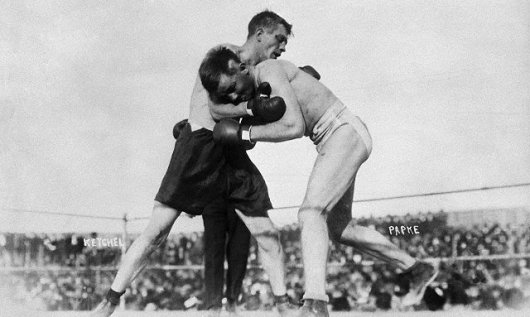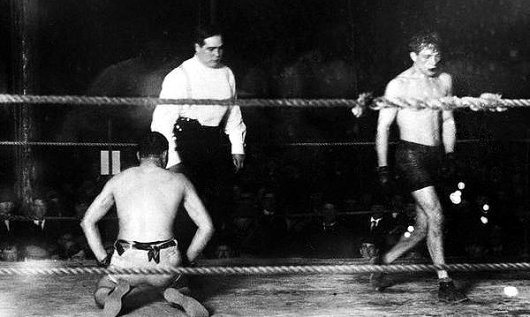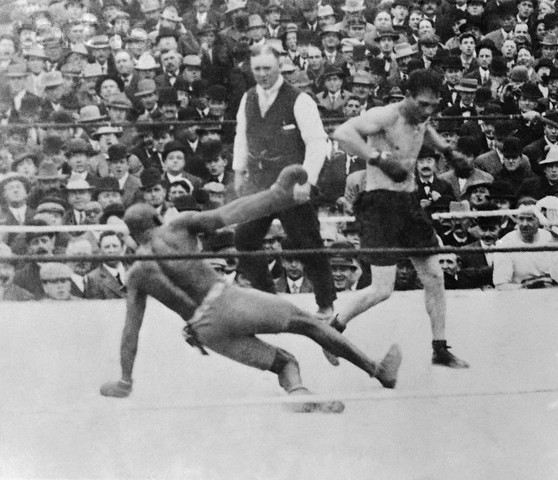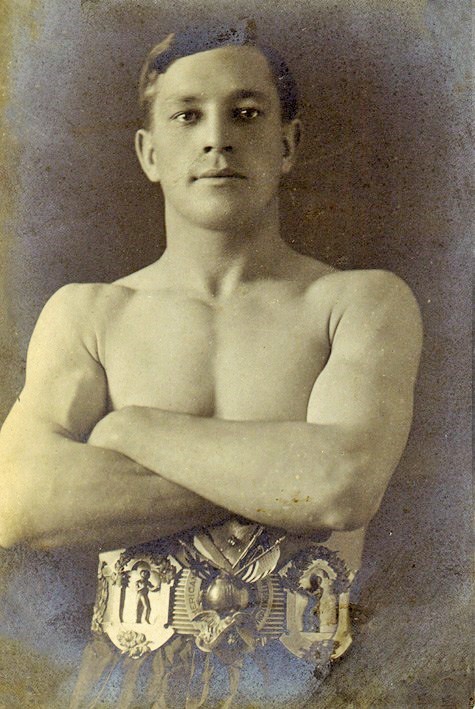For middleweight legend Stanley Ketchel, the boxing ring was the one theater by which his mania might legally mission its voice. Born in 1886 in Grand Rapids, Michigan, and orphaned at 14, the ‘Michigan Murderer’ travelled westward as a youngster, distinguishing himself as a feared road fighter in Montana’s tough-knuckled mining tradition. Ketchel would parlay his brutal fists and pugnacious disposition right into a profitable skilled boxing profession, changing into middleweight champion in 1908. His blazing run ended prematurely along with his homicide at 24, however regardless of his transient time on the high he’s ranked by some as the best middleweight of all-time. Merely put, Stanley Ketchel was some of the vicious and devastating punchers to ever put on boxing gloves.
Combating, aggression, and normal boisterousness encapsulated Ketchel’s quick life. From his days as a brawling youth to his time preventing in Montana bars, Ketchel’s identification was drawn from his skill to bodily dominate different males. As an adolescent he knocked out a grown man in a boxing exhibition at a neighborhood honest and shortly after he turned to boxing as a profitable monetary alternative. It’s estimated that earlier than he turned skilled in 1903, Ketchel battled in as many as 250 unsanctioned and doubtlessly brutal fights round Montana, throughout which he honed his ability and savagery. Whether or not as an novice or professional, Ketchel at all times entered the ring with the identical decisive look in his chilly eyes, without delay nervous and unshakably self-confident, ready to acquit himself viciously within the vortex that was the early twentieth century boxing ring.

By no means formally skilled, Ketchel didn’t possess exemplary method. He wasn’t defensively expert and infrequently fought huge open, assured that his antagonistic type would show too onerous for his opponent. Sturdy sufficient to knock somebody out with both hand, Ketchel’s thirst for violence was supported by bottomless reserves of power that allowed him to proceed urgent at a determined tempo within the late levels of a contest. He was a livid, whirling dervish contained in the ring, wholly intent on annihilating his opponent. In line with supervisor ‘Dumb’ Dan Morgan, “Ketchel was an exception to the human race. He was a savage. He would pound and rip his opponent’s eyes, nostril and mouth in a clinch. He couldn’t get sufficient blood.” Hardly ever serene, Ketchel’s impulsive, even psychopathic disposition, made his behaviour unpredictable. He typically carried a gun, and when upset would flaunt it unabashedly.

Ketchel vanquished the entire out there competitors in Montana, dropping solely twice in his first forty professional fights, with nearly all of his wins coming by knockout. He then moved on to California, with its deeper effectively of boxing expertise and the promise of an opportunity at a world title. There the profession of “The Michigan Murderer” would ascend. Shedding to Joe Thomas on factors in a controversial choice, Ketchel gained the rematch by knockout. This battle, thought-about by many to be one of many biggest in boxing historical past given its livid tempo and adjustments of momentum, was adopted by a 3rd conflict, which Ketchel gained on factors. And with the victory got here the world’s middleweight championship. Combating incessantly, Ketchel efficiently defended his title in opposition to the extremely regarded Sullivan brothers, Mike and Jack, Billy Papke, after which Joe Thomas once more.

Because the story goes (although some historians dispute its veracity), within the rematch with Papke, Stanley was blindsided by an affordable shot from the challenger earlier than the opening bell. The blow, which, based on legend gave rise to the customary pre-fight order to shake arms or contact gloves, left the champion dazed and hurting and allegedly affected his ensuing efficiency; Stanley succumbed by TKO within the twelfth spherical. Livid on the consequence, Ketchel avenged the loss in a 3rd assembly with “The Illinois Thunderbolt,” punishing his rival with out mercy for an eleventh spherical knockout, the one time in Papke’s profession that he was counted out.
After this triumph, the middleweight king headed east, twice preventing gentle heavyweight champion ‘Philadelphia’ Jack O’Brien. Within the first match—a basic, aggressive bout that was deemed a no choice—it’s attainable that Ketchel ought to have been credited with a KO victory on the finish of the tenth and closing spherical. Happily for the Irishman, the bell saved him from being counted out, leaving the end in dispute. The end result of their rematch can be much less imprecise, nonetheless, as Ketchel completed O’Brien in three rounds. He then traveled again to California to once more defeat Papke, this time by unanimous choice. This was merely a preamble, nonetheless, to his subsequent bout, an enormous showdown in opposition to the legendary Jack Johnson.

As harmful as Ketchel was, there was little probability he might beat “The Galveston Big.” Successful shouldn’t have essentially been Ketchel’s goal anyway, if he needed to adjust to the needs of the movement image firm masking the bout, which needed it to go a suitable size for business functions. This necessitated a extra reserved type of boxing, which was anathema to Ketchel. Johnson fought in his common, defensive method, conscious that he stood to obtain a sizeable share of income if the battle went lengthy sufficient to conciliate the movie-going public. Ketchel, far too aggressive a soul to stay restrained, veered from the script when he hammered Johnson with a wild proper in spherical twelve and despatched the larger man to the canvas. Johnson rose and instantly knocked Ketchel unconscious with a proper hand of his personal.

After the Johnson episode, Ketchel fought 5 extra instances earlier than his demise, incomes a no choice, dropping to Sam Langford, and successful three others, ending his profession with a document of 51-4-4. Solely 24, Ketchel was murdered by a farm hand in Conway, Missouri, in October of 1910, for causes apparently rooted in jealousy and monetary acquire. His final phrases, at odds with the fearless picture he introduced publicly, are stated to have been, “Take me residence to mom.” — Eliott McCormick

































